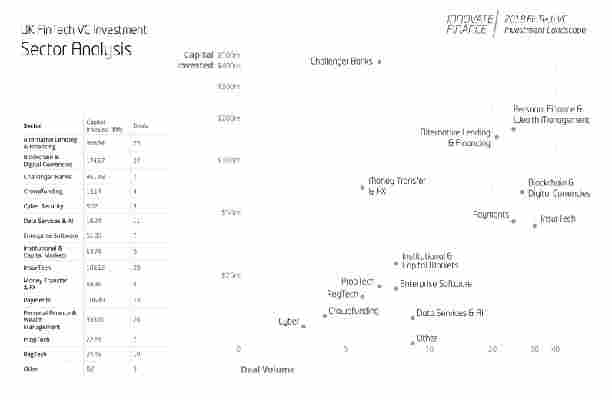US President Donald Trump , known for his complicated relationship with technology and his incessant need to share his ill-advised thoughts with the world, has admitted he’s not a fan of cryptocurrency .

The controversial billionaire–cum–leader of the free world shared his disdain with cryptocurrencies such as Bitcoin and Facebook’s upcoming Libra in a string of tweets earlier today.
Trump said cryptocurrencies were not money and took issue with their highly volatile value “based on thin air,” as well as their potential to facilitate criminal activity .
Why Trump is wrong
There are many reasons why Trump ‘s arguments are short-sighted. Although Bitcoin (pseudoanonymous) has been used to fund criminal activity , cash (completely anonymous) has been used for the same purpose for a lot longer.
Trump ‘s assertions are largely based on Bitcoin ‘s decentralized nature, and his belief that a third- party such as a government must control the issuance of money.
It’s not surprising that Trump – like many politicians and financial bigwigs – has an issue with cryptocurrency , but his less-than-favourable track record with tech does beg the question of whether he actually understands the inner workings of the technology (or even its underlying economics).
While most politicians are quick to criticize cryptocurrency , their inherent volatility, and lack of centralization, it goes without saying that the systems they represent are far from perfect.
Bitcoin , for example, came into existence in the aftermath of the 2007-2008 global financial crash, a crisis so deep that it’s considered by many economists to have been the most serious downturn since the Great Depression of the 1930s.
While theories about its causes abound, many point the blame towards a flawed political and economic model characterized by subprime lending , deregulation, and the collapse of the housing market.
So, while Bitcoin is probably not the answer to all these problems, it’s sad for Trump to criticize it so dismissively.
Bitcoin may not be controlled by a government , but it’s backed by cryptography and decentralized, rigorous consensus.
In an age where technology is arguably becoming more trustworthy than some politcians, I for one can see why cryptocurrency supporters might seek to trust math over politics.
Blockchain investment still lags behind fintech despite record-breaking 2018
European blockchain technology companies had a record year in terms of VC investment in 2018, although overshadowed by funding going into financial technology (fintech) companies.

According to Innovate Finance’s ‘ 2018 FinTech VC Investment Landscape ‘ report, the European blockchain and cryptocurrency industry witnessed a series of significant deals, but notably just four deals amounted to over $300 million.
Paxos delivers blockchain solutions for financial institutions, including Bankchain, a settlement platform seeking to transform post-trade activity across capital markets. It raised $65 million in May.
Dfinity is a blockchain-based cloud computing project. It’s registered as a non-profit in Switzerland and operates research centers in California and Germany. Dfinity raised $65 million in August.
Based in Switzerland, SEBA Crypto is seeking to build a bank offering cryptocurrency services to companies and investors. It raised $103 million in September.
Headquartered in San Francisco, but with offices across Europe, Bitfury develops software and hardware solutions to help organizations and individuals move assets across the blockchain, and it closed an $80 million round in November.
Blockchain trailing behind in the UK
Further analysis shows fintech firms such as Revolut and N26 proved more popular than blockchain among investors. Indeed, challenger banks raised some $461 million across 7 deals.
This was closely followed by businesses operating in the personal finance and wealth management ($333.61 million), and alternative lending and finance ($306.64 million) industries.


Blockchain technology and cryptocurrency companies ranked much lower, raising $174.67 million spread out across 23 deals.
Zooming out to see fintech’s bigger picture
Across the globe, fintech companies raised $36.6 billion from venture capital investors.
The sum was spread across 2,304 deals, and represented a 148% or 2.5x increase from 2017 and a 329% or 4.3x increase over five years.
Investment took off in Q2 when Ant Financial closed a $14 billion round – setting a record for both fintech and venture capital. Formerly known as Alipay, Ant Financial operates the world’s largest mobile and online payments platform.
The top countries for fintech investment in 2018 remained unchanged, with China, the United States, and United Kingdom claiming the top three spots.
China led with $18.9 billion invested across 90 deals, driven by strong deal headwinds of Ant Financial ($14 billion) and JD Digits ($1.9 billion).
The United States evidenced the most dynamic and mature market with $10.6 billion across 1,042 deals, a 52% increase in capital invested year over year.
The United Kingdom followed on in third place (top in Europe) with $1.7 billion invested across 261 deals.
Let’s compare that whopping $36.6 billion in fintech investment to the amount raised in the blockchain space through VC funding.
A report published by blockchain research group Diar states that blockchain and cryptocurrency startups raised almost $3.9 billion from VCs from Q1 to Q3 in 2018 – representing a 280 percent increase when compared to the data from 2017.
Although VCs are seemingly taking an increased interest in blockchain and cryptocurrency startups, the data suggests these companies still have a long way to go when it comes to competing with fintech businesses.
Binance hacked for over $40M worth of Bitcoin
Binance suffered what it’s calling a “large scale security breach” yesterday evening. The hackers were able to transfer 7,000 Bitcoin (over $40 million at the time of writing) in one transaction from the company’s hot wallet.

In an announcement last night , Binance‘s CEO Changpeng Zhao said that hackers were able to obtain user API keys, two-factor authentication (2FA), and potentially other info – it has not disclosed what, though. At this point, Binance also doesn’t know how many accounts have been affected.
Binance claims the attackers used a range of techniques including phishing and malware to carry out the hack. The attack managed to circumvent Binance‘s security checks, but after noticing the strange activity, the exchange blocked all withdrawals.
Withdrawals will continue to be blocked for the next seven days while Binance carries out a security check.
The announcement also says that Binance will use its SAFU (Secure Asset Fund for Users) emergency insurance fund, to reimburse accounts affected by this breach.
Did you know? Hard Fork has its own stage at TNW2019 , our tech conference in Amsterdam. Check it out .











